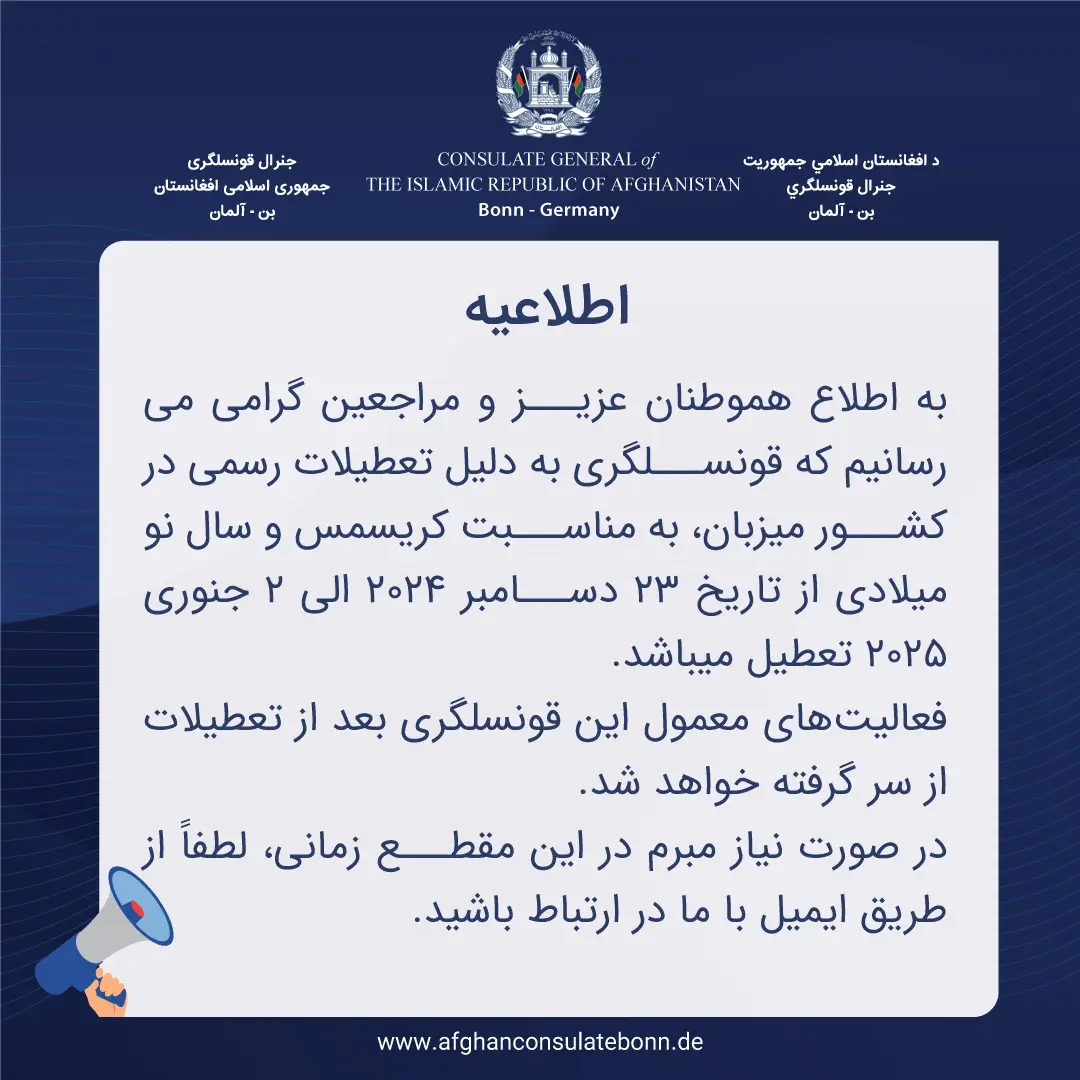Embassy of the Islamic Republic of Afghanistan in Stockholm - Kingdom of Sweden
THE ISLAMIC REPUBLIC OF AFGHANISTAN
Stockholm - Kingdom of Sweden
THE ISLAMIC REPUBLIC OF AFGHANISTAN
Stockholm - Kingdom of Sweden

A Brief Overview of Afghanistan-Sweden Relations
Deplomatic relation of Afghanistan with Sweden
-
Facebook
-
X (Twitter)
Sweden's Diplomatic Relations with Afghanistan
The diplomatic relations between Sweden and Afghanistan date back more than 80 years. Initially, these relations were managed through Moscow and later through Tehran. However, following the Soviet invasion of Afghanistan in 1979, the relations were suspended. Since 2002, Afghanistan’s diplomatic coverage has been resumed through the accreditation of Sweden’s ambassador from Islamabad, Pakistan.
Sweden’s Embassy in Kabul
Sweden opened its embassy in Kabul in 2008. Between 2010 and 2014, Sweden also had a representative office in Mazar-i-Sharif, located in northern Afghanistan. After the Taliban’s takeover in August 2021, Sweden relocated its embassy from Kabul to Stockholm, and in August 2024, it was officially closed.
Afghanistan’s Embassy in Stockholm
Afghanistan opened its embassy in Stockholm in 2014 to strengthen diplomatic and consular relations with Sweden. After the Taliban takeover in 2021, the embassy remained under the management of diplomats from the Islamic Republic of Afghanistan and continued to provide services, particularly consular services, to the Afghan diaspora.
Early Relations (1940s–1970s)
Sweden and Afghanistan formally established diplomatic relations in the 1940s through the Swedish embassies in Moscow and Tehran. In the 1980s, Swedish non-governmental organizations (NGOs), such as the Swedish Committee for Afghanistan (SCA), began humanitarian activities in various sectors of Afghanistan. With 8,000 employees—99% of whom are Afghan—SCA is one of the largest aid organizations in Afghanistan. The committee is politically and religiously neutral and aims to help Afghanistan become a peaceful and stable country where human rights are respected.
Soviet Invasion and Sweden’s Humanitarian Support (1980s–1990s)
During the Soviet-Afghan War (1979–1989), Sweden suspended its diplomatic relations and had no political role in Afghanistan but provided significant humanitarian aid. The Swedish Committee for Afghanistan was established in 1980 and became one of the largest international NGOs focusing on education, healthcare, and rural development in Afghanistan. However, in recent years, the committee’s activities have been restricted due to the Taliban’s strict policies.
Post-Taliban Era and Sweden’s Military Involvement (2001–2021)
After the fall of the Taliban regime and the establishment of the Islamic Republic of Afghanistan in 2001, Sweden deployed 9,500 military personnel as part of NATO’s International Security Assistance Force (ISAF) and Resolute Support Mission (RSM), primarily stationed in northern Afghanistan. During this period, Sweden focused on humanitarian aid, democracy promotion, and women’s rights in Afghanistan.
Between 2006 and 2012, Sweden led the Provincial Reconstruction Team (PRT) in Mazar-i-Sharif, covering four northern provinces. In 2010, Sweden created a civilian entity within the PRT, known as the Senior Civilian Representative (SCR), which took charge of Sweden’s efforts in northern Afghanistan from 2012. From 2012 to 2014, the PRT transitioned into a Transition Support Team (TST) to facilitate the transfer of security responsibilities to Afghan authorities. Sweden ended its participation in the Resolute Support Mission in May 2021.
Afghan Migration to Sweden
Due to Sweden’s generous asylum policies, it became a major destination for Afghan refugees, particularly after 2015 when many unaccompanied Afghan minors sought asylum there. However, Sweden later implemented stricter asylum policies, sparking debates on the deportation of Afghan refugees. After the Taliban returned to power in 2021, Sweden halted deportations of Afghan asylum seekers and increased its humanitarian aid.
Recent Developments (2021–2025)
In August 2021, after the Taliban seized Kabul, Sweden closed its embassy in the Afghan capital. However, Swedish humanitarian organizations continued their operations in Afghanistan despite facing restrictions from the Taliban. Additionally, in recent years, Sweden has provided financial assistance to Afghan refugees in neighboring countries like Iran and Pakistan.
Key Aspects of Sweden-Afghanistan Relations:
- Humanitarian Aid: Sweden has been one of Afghanistan’s largest donors, focusing on education, healthcare, and women’s rights.
- Migration and Refugees: Sweden hosts a large Afghan diaspora. According to some sources, over 79,000 Afghan nationals live in Sweden, many of whom have successfully integrated into Swedish society, contributing to various economic, professional, and educational fields.
- Military and Peace Support: Between 2001 and 2021, as Afghanistan faced terrorism and conflict, Sweden participated in NATO-led operations primarily focused on peace and security.
These relations reflect Sweden’s commitment to humanitarian principles and its support for the Afghan people amid crises and political changes. By emphasizing humanitarian aid and accepting Afghan refugees, Sweden has played a crucial role in supporting the Afghan people and promoting peace and security in the region.
